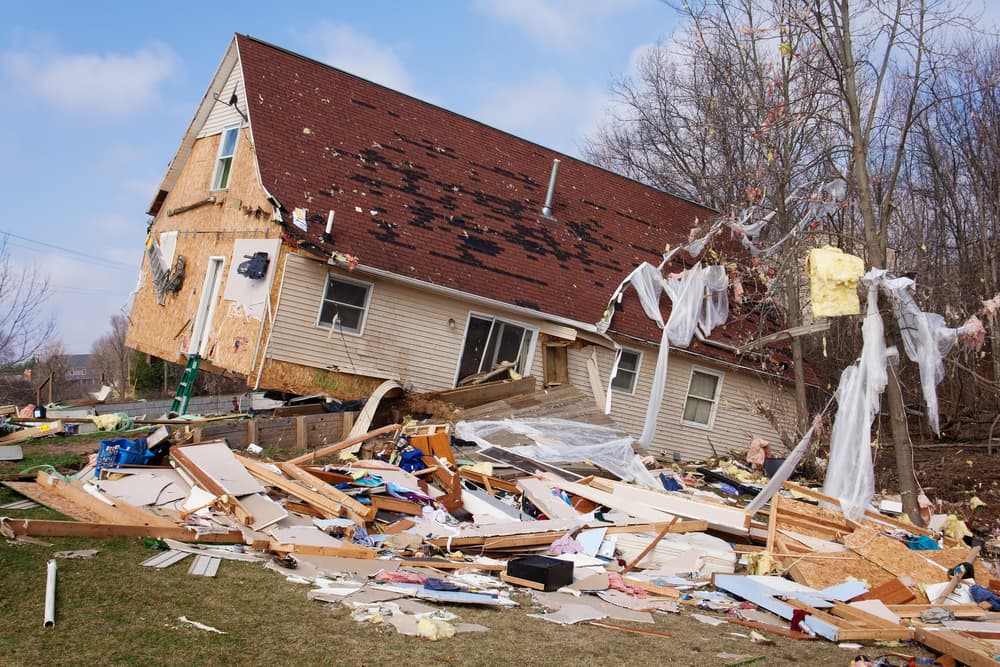Tornadoes are among the most destructive natural disasters, capable of leveling homes, tearing apart personal property, and displacing families in a matter of minutes. In the aftermath, homeowners and property owners often face another unexpected challenge: navigating complex and sometimes frustrating insurance claims.
Filing a claim for tornado-related damage may seem straightforward, but the process can be filled with delays, denials, and underpayments. In such cases, a tornado damage lawyer or property damage attorney can play a vital role in helping claimants understand their rights and get the compensation they’re entitled to under their insurance policy.

Content
The Problem: Claim Complications After a Tornado
After a tornado, insurance companies dispatch their own adjusters to assess damage. However, these adjusters work for the insurer—not the policyholder. Homeowners may encounter a range of difficulties, such as:
- Disagreements over the extent of structural damage
- Claims denied due to alleged exclusions in the policy
- Low settlement offers that don’t reflect true repair or replacement costs
- Delays in processing claims or receiving responses
These complications are especially common when a tornado has impacted multiple homes in a community, leading to overwhelmed insurance systems and rushed assessments.
The Legal Role: What a Tornado Damage Lawyer Does
A lawyer for tornado damage or a storm damage lawyer helps bridge the gap between policyholders and insurance companies. They focus on interpreting policy language, documenting losses, and advocating for the fair treatment of claims. Their involvement can include:
1. Policy Review
Tornado damage lawyers carefully review the homeowner’s insurance policy, looking for any clauses, exclusions, or limitations that may affect the claim. This step ensures that policyholders are aware of their rights and entitlements.
2. Damage Documentation
Lawyers often collaborate with independent inspectors, contractors, and engineers to document the full extent of damage. This includes both visible and hidden structural issues, as well as personal property damage such as destroyed furniture, electronics, and appliances.
3. Claim Preparation and Submission
A homeowners insurance claim attorney ensures that all paperwork is correctly completed and submitted on time. This reduces the likelihood of delays due to clerical errors or missing documentation.
4. Negotiation with Insurance Companies
Property damage attorneys negotiate directly with insurers to dispute low settlement offers or denials. Their knowledge of state laws and insurance regulations helps level the playing field during these discussions.
5. Litigation, If Necessary
If a fair resolution cannot be reached, a property insurance lawyer may file a lawsuit against the insurer for breach of contract or bad faith. In some cases, legal action is necessary to recover the full cost of rebuilding or replacing lost property.
Common Legal Issues After Tornadoes
Tornado claims often overlap with other insurance disputes. For instance:
- If a fire breaks out as a result of tornado damage, a fire damage insurance claim lawyer may also be involved.
- Commercial properties affected by tornadoes may require a commercial property insurance attorney to handle business interruption claims and high-value structural losses.
- Disagreements about homeowners insurance claim handling may bring in a homeowner insurance disputes lawyer, especially when delays or denials are not justified by the policy.
In addition, property damage lawyer fees and the question of who pays for legal representation can be a concern for many homeowners. It’s important to understand that many property damage attorneys work on a contingency fee basis, meaning they only get paid if the claim is successful.
Importance of Local and Specialized Legal Help
Hiring a homeowners insurance lawyer near you is often advantageous. Local attorneys are familiar with regional building codes, common insurer practices in the area, and local weather-related claim trends. In areas frequently affected by tornadoes, experienced lawyers for property damage understand the nuances of storm-related insurance law.
In addition, specialized lawyers such as residential property damage lawyers bring targeted expertise that can lead to more accurate claims and stronger negotiations.
Tips for Homeowners After Tornado Damage
Even if legal help isn’t immediately needed, there are steps homeowners can take to protect their claims:
- Document everything – Take detailed photos and videos of all damage, both inside and outside the home.
- Keep receipts – Save receipts for temporary repairs, hotel stays, and any out-of-pocket expenses related to displacement or damage.
- Request a copy of your policy – Ensure you have a full copy of your homeowners insurance policy for reference.
- Avoid quick settlements – Don’t accept the first offer from your insurer if you believe it doesn’t cover the full extent of your loss.
- Know your rights – Understand what is covered and what isn’t under your policy. If in doubt, consult a professional.
Conclusion
Tornadoes cause not just physical destruction, but also financial and emotional strain. Navigating the aftermath through insurance can be daunting, especially when facing delayed responses, denied claims, or unclear policy language.
A tornado damage lawyer can provide the clarity and legal support needed to help property owners recover more fully. Whether it’s interpreting policy terms, negotiating a fair settlement, or taking legal action, these attorneys play a critical role in ensuring that insurance claims reflect the true cost of recovery.
Understanding your legal options and rights after tornado damage is essential. While not every case requires litigation, knowing when to seek legal guidance can make the difference between a partial payout and full compensation.

I am Donovan and my love is writing about home improvement. I write mostly about home ideas, but also share some tips and tricks that can make your life easier when it comes to getting things done in the house.